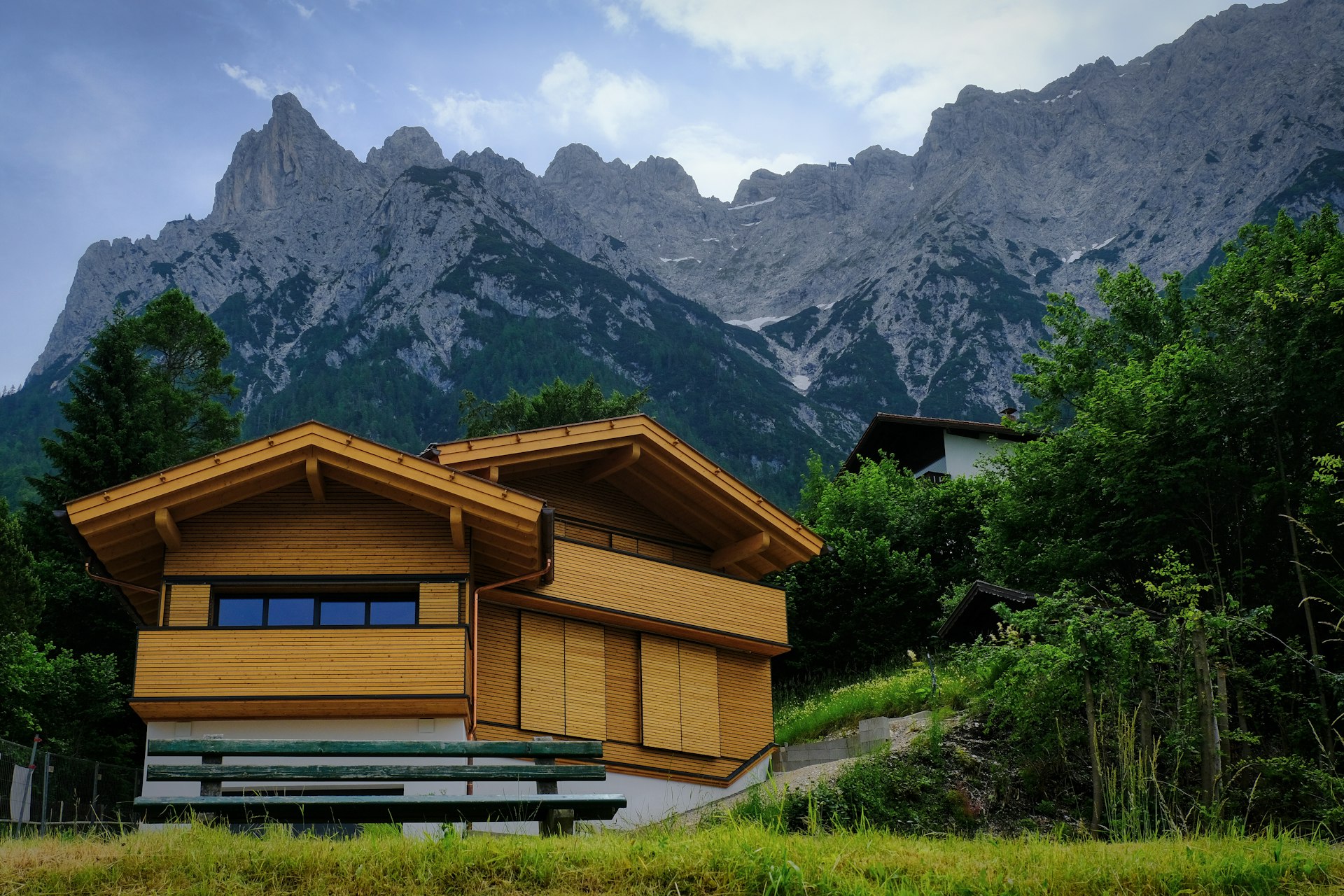Eco-Friendly Accommodations: A Guide for Conscious Travelers Seeking Sustainable Stays

Photo by Valeriia Miller on Unsplash
Introduction: The Conscious Traveler’s Quest for Sustainable Accommodation
As environmental concerns and ethical travel practices move to the forefront of public awareness, eco-friendly accommodations are fast becoming the preferred option for travelers who value sustainability, community engagement, and authentic experiences. This article provides actionable guidance for finding, verifying, and enjoying eco-friendly stays, as well as exploring the key features that distinguish truly sustainable lodging from greenwashed alternatives. [4]
What Defines Eco-Friendly Accommodation?
Eco-friendly accommodations go beyond simple recycling bins and energy-saving light bulbs. True sustainability encompasses a holistic approach:

Photo by Peter Schulz on Unsplash
- Renewable energy sources such as solar panels or wind turbines
- Water conservation through rainwater harvesting, low-flow fixtures, and responsible laundry practices
- Waste management via composting, minimizing single-use plastics, and recycling programs
- Sustainable sourcing of food and materials, emphasizing local, organic, and plant-based options
- Community involvement through local hiring, education initiatives, and cultural preservation
- Low-impact architecture using recycled, natural, or locally sourced materials
- Nature-based experiences that foster environmental awareness
Travelers should be vigilant for genuine sustainability and avoid venues that rely on marketing buzzwords without substantiated practices. Whenever in doubt, request specific details about a property’s environmental policies and community initiatives. [5]
Finding Verified Eco-Friendly Accommodations
To locate authentic eco-friendly lodging options, begin by researching through established platforms and organizations. Search terms such as “eco hotel,” “sustainable lodge,” or “green accommodation” alongside your destination can yield valuable results. Popular, verified directories and travel websites often feature sustainability filters or dedicated sections:
- Review articles from reputable travel publications highlighting world-leading sustainable hotels, e.g., The Hotel Journal’s curated list of the world’s most sustainable hotels. [1]
- Seek out blogs and travel agencies specializing in sustainability, such as Fora Travel and Two Dusty Travelers, which offer detailed reviews and recommendations. [3] [2]
- Use accommodation booking platforms that allow filtering by eco-friendly features, and cross-check any claims on the property’s official website.
When booking, look for transparency regarding sustainability certifications or awards, such as LEED, Green Key, or EarthCheck. If no certification is listed, inquire directly about their environmental practices and local community engagement.
Case Studies: Real-World Examples of Sustainable Stays
Here are several acclaimed properties that exemplify eco-friendly hospitality:
- Bambu Indah (Bali, Indonesia): Features architecture crafted from natural materials, uses no electricity, and sources all produce from its own gardens. Guests swim in a natural spring pool shaded by palm groves. The hotel’s sustainable design is rooted in local traditions and environmental stewardship. [1]
- Bali Eco Stay (Indonesia): Locally owned, this resort has implemented permaculture methods, a village-wide trash collection network, and community initiatives like school libraries and health programs. Guests participate in waste reduction and environmental restoration activities. [2]
- Galapagos Safari Camp (Ecuador): Supports local schools, promotes reforestation, and utilizes rainwater harvesting and solar panels. The property minimizes plastic use and involves guests in wildlife conservation efforts. [3]
- The Pig at Combe (United Kingdom): Uses upcycled furniture, LED lighting, and onsite-grown ingredients. It also incorporates recycled products and offers rustic, nature-focused experiences. [1]
These examples demonstrate that eco-friendly accommodations exist across diverse regions and price ranges, from luxury safari camps to budget-conscious hostels. [4]
Step-by-Step Guide: Booking and Verifying Eco-Friendly Lodging
1. Research : Start with trusted travel websites, sustainability-focused directories, or recommendations from reputable travel writers. Use filters for “eco-friendly” or “sustainable” options where available. 2. Check Certifications : Look for third-party certifications or awards. If absent, ask for documentation of their sustainable practices. 3. Verify Claims : Review the property’s website for details on energy use, waste management, water conservation, and community involvement. Ask for specifics if information is vague. 4. Compare Alternatives : If possible, compare several options in your destination. Consider proximity to public transportation, local sourcing of food, and operational transparency. 5. Contact Directly : If still uncertain, reach out to the accommodation via phone or email and request a summary of their sustainability initiatives. Genuine eco-friendly businesses will be forthcoming with details. 6. Review Guest Experiences : Check traveler reviews for mentions of sustainable practices, staff engagement, and overall impact. 7. Educate Yourself : Familiarize yourself with common greenwashing tactics so you can distinguish marketing claims from actual sustainability. [4]
If you cannot find a verified link for booking, use search terms like “eco-friendly hotel [destination]” on major booking platforms, and always confirm with the property before finalizing your reservation.
Common Challenges and Solutions
Challenge: Greenwashing and lack of transparency. Solution: Use the verification steps above, request documentation, and rely on third-party reviews from recognized sustainability experts or organizations.
Challenge: Limited availability in remote destinations. Solution: Consider alternative lodging such as eco-lodges, sustainable hostels, or community-based homestays, which may offer lower environmental impact and greater cultural immersion.
Challenge: Higher costs for some eco-certified properties. Solution: Balance your budget by prioritizing properties with the most impactful sustainability features, or opt for hostels and guesthouses that demonstrate genuine environmental commitment. [4]
Alternative Pathways: Beyond Traditional Eco-Hotels
Conscious travelers may also explore:
- Community-based tourism initiatives where local families host travelers and share cultural and environmental practices
- Volunteer programs that contribute to conservation, education, or sustainable development
- Nature-based experiences such as guided hikes, wildlife tours, and beach clean-ups offered by eco-lodges and hostels
For more information, consider searching for “community tourism [destination]” or “volunteer eco-travel programs” and contact local tourism offices for verified listings.
Key Takeaways for Conscious Travelers
Choosing eco-friendly accommodations is a powerful way to reduce your environmental impact, support local economies, and enrich your travel experience. By following the research and verification steps outlined above, you can ensure your lodging aligns with your values and contributes meaningfully to sustainability efforts. [5]
For further learning, review the references below and consider joining travel forums or organizations dedicated to sustainable tourism. Your choices matter-for the planet, for local communities, and for the future of travel.
References
- [1] The Hotel Journal (2024). The world’s most sustainable hotels: stay in eco-friendly style.
- [2] Two Dusty Travelers (2024). Sustainable Hotels: 7 Awesome Earth-Friendly Places We Want to Stay.
- [3] Fora Travel (2024). 7 Eco-Friendly Hotels for Conscious Travelers.
- [4] Worldpackers (2024). The ultimate guide to eco-friendly accommodations.
- [5] Hotel Interactive (2024). The Rise of Sustainability and Eco-Conscious Travel.
MORE FROM resultsfordeals.com













